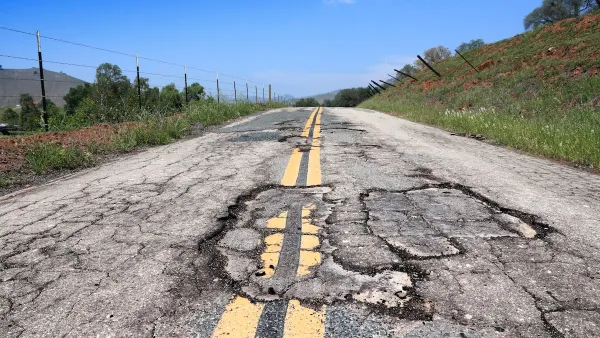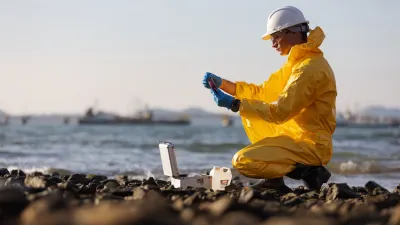Cities and suburbs face billions of dollars in investments and repairs to comply with Clean Water Act standards. The NRDC outlines some of the urban water conservation methods municipalities can take to reduce stress on these infrastructure systems.
Despite decades of under-investing, cities and suburbs are still held responsible for billions of dollars towards maintaining and improving infrastructure in compliance with the Clean Water Act. For many municipalities, it is a balancing game between keeping up with increasing water demand due to growing populations, and maintaining water supply through sewage treatment and stormwater controls. With looming climate change and extreme weather conditions, agencies are faced with an immense challenge.
A new report from the Natural Resources Defense Council advances treatments to lower water demand through various programs and policies, which in turn would "also have the potential to improve efficiency of certain wastewater treatment processes at existing facilities, [and yield] lower operating costs and extended equipment replacement periods."
A few methods are outlined in the report, such as "promoting or mandating the use of water efficient fixtures, appliances, and landscapes, as well as graywater and blackwater reuse systems", as well as "improved metering, volumetric billing, and conservation pricing, for drinking water, wastewater, and stormwater." Another suggestion is to install cisterns and rain barrel through incentives or rebates to capture rainwater and limit discharge of stormwater run off.
The report outlines best practices from different municipalities, and recommends policy changes/ resources cities and suburbs can take advantage of to uphold Clean Water Act regulations.
FULL STORY: Waste Less, Pollute Less: Using Urban Water Conservation to Advance Clean Water Act Compliance

Maui's Vacation Rental Debate Turns Ugly
Verbal attacks, misinformation campaigns and fistfights plague a high-stakes debate to convert thousands of vacation rentals into long-term housing.

Planetizen Federal Action Tracker
A weekly monitor of how Trump’s orders and actions are impacting planners and planning in America.

San Francisco Suspends Traffic Calming Amidst Record Deaths
Citing “a challenging fiscal landscape,” the city will cease the program on the heels of 42 traffic deaths, including 24 pedestrians.

Defunct Pittsburgh Power Plant to Become Residential Tower
A decommissioned steam heat plant will be redeveloped into almost 100 affordable housing units.

Trump Prompts Restructuring of Transportation Research Board in “Unprecedented Overreach”
The TRB has eliminated more than half of its committees including those focused on climate, equity, and cities.

Amtrak Rolls Out New Orleans to Alabama “Mardi Gras” Train
The new service will operate morning and evening departures between Mobile and New Orleans.
Urban Design for Planners 1: Software Tools
This six-course series explores essential urban design concepts using open source software and equips planners with the tools they need to participate fully in the urban design process.
Planning for Universal Design
Learn the tools for implementing Universal Design in planning regulations.
Heyer Gruel & Associates PA
JM Goldson LLC
Custer County Colorado
City of Camden Redevelopment Agency
City of Astoria
Transportation Research & Education Center (TREC) at Portland State University
Jefferson Parish Government
Camden Redevelopment Agency
City of Claremont




























